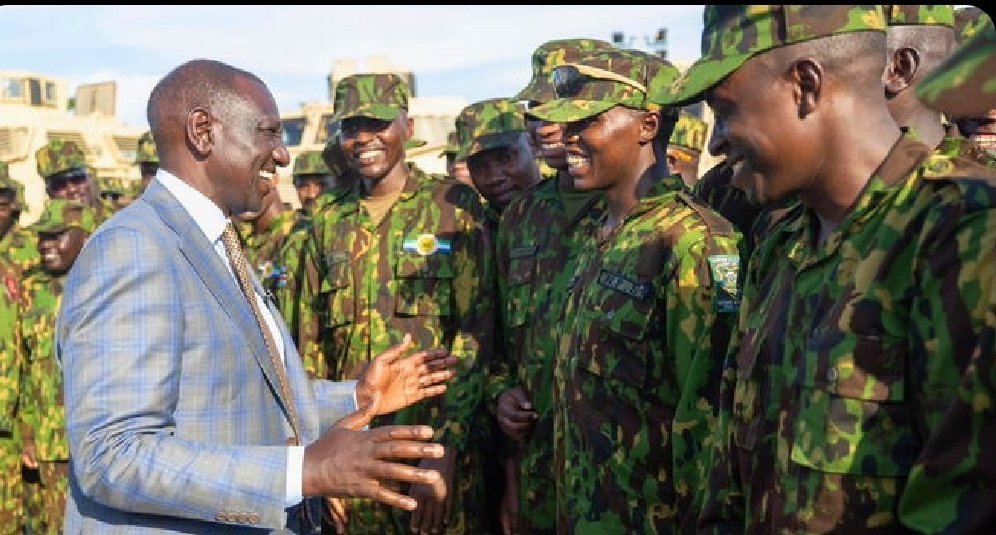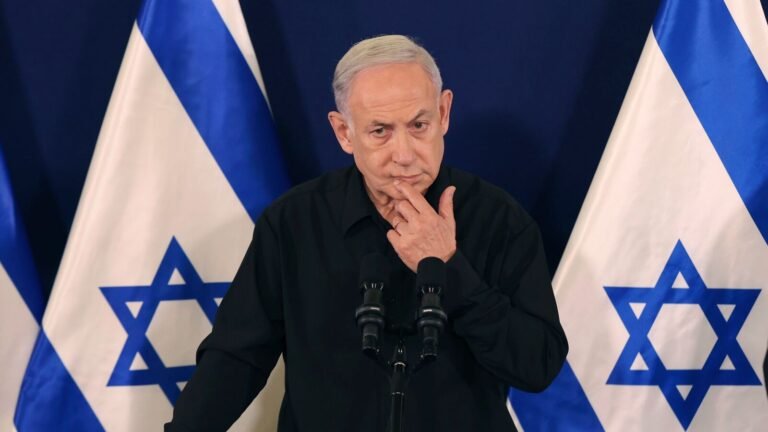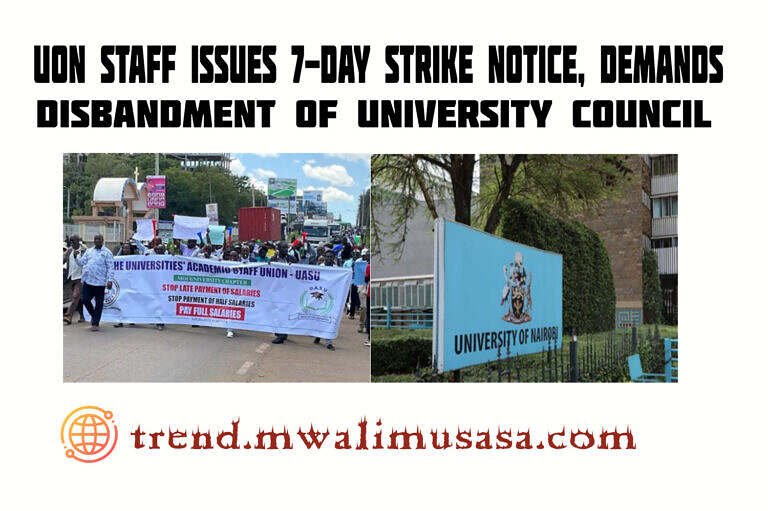
Introduction
In recent developments, the Kenya-led mission in Haiti has emerged as a significant point of discussion within the realm of international diplomacy and security. Launched in response to the escalating violence and instability in Haiti, this mission is aimed at restoring order and providing humanitarian assistance to the beleaguered nation. The mission’s objectives include the rebuilding of local governance, the enhancement of security, and the delivery of essential services to the Haitian populace. As the situation on the ground evolves, there have been calls for this mission to be transformed into a United Nations peacekeeping operation, which would provide greater mandate and resources aimed at stabilizing the country effectively.
This proposed shift to a UN peacekeeping operation raises critical questions regarding international cooperation and the competing interests of global powers. The potential transformation of the Kenya-led mission into a UN operation is not merely a logistical consideration; it also reflects broader geopolitical dynamics involving key players such as Kenya, the UN, and powerful nations like China and Russia. Both countries have voiced their opposition to this transformation, highlighting their concerns about the implications it carries for sovereignty and the potential for escalation of foreign involvement in Haiti’s internal affairs.
The opposition from China and Russia underscores the delicate balance of power and the differing perspectives on international intervention. As both nations maintain their own strategic interests, their resistance to the Kenya-led mission’s evolution into a UN peacekeeping initiative speaks volumes about the complexities of international relations in the context of humanitarian efforts. This introduction serves to set the stage for a deeper exploration of this geopolitical landscape, focusing on the ramifications of the Kenya-led mission and the reaction from major global powers.
Background on the Haiti Crisis
Haiti has been grappling with a multifaceted crisis that encompasses profound political instability, escalating social unrest, and dire humanitarian challenges. Following the assassination of President Jovenel Moïse in July 2021, the political landscape of Haiti has been marked by a power vacuum that has exacerbated existing governance issues. With no clear leadership or credible electoral timeline, the Democratic Government has struggled to regain control, leading to a surge in gang-related violence, lawlessness, and widespread insecurity across the nation.
The social fabric of Haiti is under tremendous strain, with community violence driving families from their homes and creating a climate of fear that affects daily life. Various gangs have taken advantage of the security crisis, claiming control over significant portions of the capital, Port-au-Prince, and other urban areas. Many citizens find themselves trapped in cycles of displacement and violence, resulting in a humanitarian catastrophe characterized by increased poverty, homelessness, and inaccessibility to basic services such as food and healthcare.
Compounding these challenges is the humanitarian response, which has been hindered by a lack of resources and coordination among international and local actors. The United Nations and various non-governmental organizations have attempted to mitigate the issues, but ongoing political upheaval hampers effective intervention. The rising number of internally displaced persons has raised alarms about food insecurity and health crises, putting additional pressure on international aid efforts.
The implications of the ongoing crisis extend far beyond Haiti’s borders, posing threats to regional stability. Neighboring countries face the potential influx of refugees, while international stakeholders are increasingly concerned about the risks that unchecked violence and instability could present to broader geopolitical interests. Previous international interventions have had mixed results, highlighting the need for a thorough, cooperative approach to restore peace and build a sustainable future for Haiti.
The Kenya-led Mission: Objectives and Achievements
The Kenya-led mission in Haiti is rooted in a series of objectives aimed at stabilizing the country amid ongoing violence and humanitarian crises. The mission seeks to bolster security, restore public order, and facilitate essential services that have been severely disrupted. In light of the escalating gang violence and political instability, Kenya has taken a proactive role, emphasizing the importance of a collaborative approach to create a sustainable peace in Haiti.
One of the primary objectives of the mission is to enhance the capacity of the Haitian National Police (HNP) through training and support. This endeavor includes bolstering law enforcement capabilities to effectively address the threats posed by gangs. Moreover, the mission aims to improve community relations with the police, thereby ensuring that police efforts are perceived as legitimate and beneficial by local populations. Further, enhancing the rule of law is critical in rebuilding the trust between citizens and their government.
The achievements of the Kenya-led mission, though still in their early stages, have been noteworthy. Initial operations have reportedly led to a reduction in violence in certain neighborhoods, contributing to a more secure environment for humanitarian assistance efforts. Additionally, Kenya’s proactive engagement with local communities has initiated dialogues that promote peacebuilding at grassroots levels. However, challenges remain. Gangs continue to pose significant threats, and the logistical complexities of operating in a foreign environment have tested the mission’s resilience and adaptability. While the road ahead is fraught with hurdles, the mission endeavors to build a foundation for long-term stability and prosperity in Haiti.
Transitioning to a UN Peacekeeping Operation
The transition of a mission led by Kenya in Haiti to a United Nations (UN) peacekeeping operation is a multifaceted process that involves various steps and considerations. At its core, such a transition aims to reinforce the mission’s legitimacy, enhance its operational capacity, and ensure a sustainable peace process. Typically, the initiation of this transition requires comprehensive discussions involving key stakeholders including Kenya, the UN, and the Haitian government, alongside input from other international actors.
A significant benefit of transitioning to a UN peacekeeping operation is the increased level of resources and support that the UN can provide. UN peacekeeping forces often come with substantial logistical capabilities, advanced training, and personnel from multiple countries, enhancing the operational effectiveness of the mission. Furthermore, a transition may facilitate a more standardized framework for peacekeeping, allowing for cohesive strategies and methodologies that can more effectively address Haiti’s political and humanitarian crises.
However, this transition is not without its challenges. For one, there are often divergent opinions among UN member states regarding intervention strategies and the nature of support required. Countries like China and Russia have voiced opposition to such transformations, reflecting broader geopolitical interests and alliances which may complicate the approval process at the UN Security Council. Additionally, concerns about the local perception of foreign intervention and the sovereignty of Haiti present significant barriers that must be navigated carefully.
Ultimately, the successful transformation of the Kenyan-led mission into a UN peacekeeping operation could signal a critical step toward stabilizing Haiti, providing a platform for both peacebuilding efforts and the restoration of essential services. It would also underscore the international community’s ongoing commitment to addressing security challenges in complex environments like that of Haiti.
China and Russia’s Opposition: Reasons and Rationale
China and Russia’s opposition to the transformation of the Kenya-led mission in Haiti into a United Nations peacekeeping operation is rooted in a complex interplay of geopolitical interests and historical contexts. Both nations have historically maintained a cautious stance regarding foreign interventions, particularly those orchestrated under the auspices of international organizations like the UN. Their resistance is bolstered by concerns surrounding national sovereignty and the potential precedent that an international mandate might set for future interventions in domestic affairs.
One significant factor influencing China’s position is its expanding influence in the Caribbean region. China has been actively investing in infrastructure projects and fostering diplomatic relationships with Caribbean nations, including Haiti. By opposing the UN operation, China seeks to assert its role as a key regional player, promoting bilateral cooperation over multilateral oversight. Moreover, China’s opposition reflects its broader strategy of countering perceived Western dominance in global affairs, particularly in regions where it aims to expand its footprint.
Similarly, Russia’s hesitance stems from its historical relations with Haiti and its strategic interests in reinforcing political alliances with nations that resist Western influence. The Kremlin views any UN-led mission as a potential vehicle for Western interests, posing risks to stability and governance in the region. This perspective is compounded by Russia’s commitment to supporting nations that share its distrust of Western interventions, further embedding its standing as a counterbalance to US-led actions in international diplomacy.
The arguments put forth by China and Russia highlight a broader apprehension towards foreign interference within sovereign nations. Both nations champion the idea that local governance should remain at the forefront of establishing peace and stability, thus advocating for a model that prioritizes Haitian agency. As a result, their opposition not only reflects their geopolitical motives but also underscores a growing trend among certain global powers to resist external control over national affairs.
Impact of China and Russia’s Opposition on the Mission
The opposition from China and Russia towards the Kenya-led mission in Haiti is poised to significantly influence various facets of the humanitarian and peacekeeping efforts in the region. Both nations have historically wielded considerable influence within the United Nations Security Council (UNSC), and their dissent may exacerbate the already complex diplomatic negotiations surrounding the proposed transformation of the mission into a full-fledged UN peacekeeping operation.
China and Russia’s stance could complicate discussions among member states regarding the scope, mandate, and funding necessary for effectively addressing the ongoing crisis in Haiti. Without the backing of these two permanent members of the UNSC, proposals for extending international assistance may face increased scrutiny, leading to potential delays or alterations in funding arrangements. This situation could hinder the timely deployment of crucial support services and resources that are critical for stabilizing the country.
Moreover, the political ramifications of their opposition may dissuade other countries from participating in the mission. A lack of consensus on international involvement could result in fewer troops and resources being allocated, thereby diminishing the overall efficacy of the mission. The perception of instability in the mandate could also raise concerns about operational safety and success among potential troop-contributing countries, leading to reluctance in committing their personnel and agencies to the mission.
Additionally, the opposition may foster an environment of geopolitical competition, impacting international responses. Should China and Russia strengthen their ties with the Haitian government or oppose Western-led initiatives, the humanitarian and peacekeeping efforts may become further entangled in broader geopolitical disputes. As such, the repercussions of their stance extend far beyond immediate influence, shaping the international community’s approach to crisis management in Haiti for the foreseeable future.
International Reactions and Implications
The opposition to the Kenya-led Haiti mission transforming into a United Nations peacekeeping operation has elicited varied responses from key international players, regional organizations, and the UN itself. Notably, the reactions from China and Russia underscore a significant geopolitical rift concerning the approach to international interventions. Both nations have voiced their concerns about the potential ramifications of establishing a UN presence in Haiti under the proposed terms, suggesting that such an action might exacerbate existing tensions within the region.
Chinese officials have emphasized the importance of respecting Haiti’s sovereignty and have advocated for a more concerted dialogue among Caribbean nations to address the underlying issues driving the current crisis. This perspective mirrors China’s broader foreign policy strategy, which often prioritizes non-interference and seeks to enhance multilateral cooperation among developing nations.
Similarly, Russia’s stance reflects a cautious approach to international engagements, highlighting a skepticism toward Western-led initiatives, particularly those sanctioned by the UN. Moscow’s objections center on the fear of external geopolitical interests overriding humanitarian objectives, thereby complicating the myriad challenges facing Haiti. These positions resonate within a greater narrative of power dynamics in the global arena, revealing a growing preference for bilateral or regional solutions over what may be perceived as unilateral interventions.
Moreover, the response from regional organizations such as CARICOM (the Caribbean Community) has been more supportive of a collaborative, multi-state effort, stressing the importance of engaging regional players in addressing the multifaceted crises in Haiti. This ongoing discourse suggests a potential shift toward increasingly localized strategies for conflict resolution, which could influence how future international interventions are structured. As countries navigate the complexities of international relations, their responses to such proposals will likely have lasting implications on the prospect of future global peacekeeping operations.
Future Prospects for the Kenya-Led Mission
The future of the Kenya-led mission in Haiti and its potential transformation into a United Nations peacekeeping operation is fraught with challenges. As China and Russia have expressed opposition to this initiative, understanding the implications of their stance is crucial for the mission’s next steps. Resolving Haiti’s ongoing conflict and humanitarian crisis necessitates a strategic approach from Kenya and supportive entities within the international community.
Firstly, it is essential for Kenya to engage in diplomatic dialogues with key stakeholders, including China and Russia. By understanding their concerns, Kenya can address apprehensions regarding the mission’s goals and methodologies. Open lines of communication may facilitate cooperative frameworks that prioritize Haiti’s stability while also accommodating the interests of opposing nations. Furthermore, deepening partnerships with other African nations and regional organizations could bolster Kenya’s position, providing a unified front that underscores the continent’s commitment to peacekeeping.
Additionally, Kenya must work to strengthen its operational capabilities in Haiti. This entails ensuring that personnel are well-trained and adequately equipped to manage the specific dynamics of the Haitian context. Whether through specialized trainings or logistics support from allies, enhancing the mission’s efficacy is paramount. Collaborating with non-governmental organizations (NGOs) and community leaders in Haiti can also lay the groundwork for grassroots support, which is vital for establishing trust and facilitating long-term peace efforts.
Moreover, the international community’s role cannot be overstated; external support in terms of funding and resources is necessary. Kenyans can advocate for a comprehensive international framework that includes support for economic development alongside security measures. Addressing the root causes of unrest, such as poverty and governance issues, will create a sustainable environment for peace. This multifaceted approach ensures that the mission does not become solely military-driven but is viewed as a holistic effort to lift Haiti towards stability and recovery.
Conclusion
In summary, the situation in Haiti remains intricate, characterized by ongoing humanitarian crises and a pressing need for intervention. The proposed transformation of the Kenya-led mission into a United Nations peacekeeping operation presents a critical juncture for international engagement in Haiti. However, this initiative is complicated by the opposing stances of major global powers, notably China and Russia. Their reluctance to support the UN’s involvement reflects broader geopolitical interests, raising questions about the motivations behind their positions and the implications for Haiti’s future.
The significance of robust international involvement cannot be overstated, as it is imperative for addressing the multifaceted challenges that Haiti faces. These challenges include gang violence, political instability, and public health crises, all of which negatively affect the local population. A unified strategy from the international community could help foster a secure environment conducive to rebuilding and stabilization efforts. Yet, the divergence in perspectives, particularly from China and Russia, hinders this necessary collaboration.
As the humanitarian crisis continues to deteriorate, the urgency for a viable solution escalates. It is essential for countries and organizations around the world to engage in constructive dialogue, striving to find common ground that transcends national interests. Addressing the complexities of the situation requires a coordinated response that prioritizes the welfare of the Haitian people over political allegiance. Understanding the nuances of this challenge will be fundamental in developing effective strategies aimed at restoring peace and stability in Haiti.




